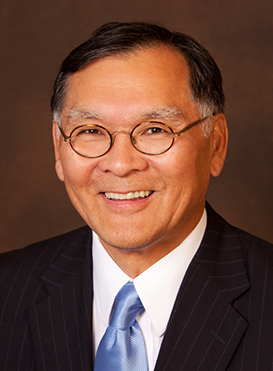By Caleb Larkin
Capital West News
SALT LAKE CITY – The Access to Health Care Amendments, a bill that is largely consistent with Governor Herbert’s health care proposal, was passed by the Senate Health and Human Services Committee with a favorable recommendation and will head to the Senate floor for further consideration.
SB164 allows the Department of Health to provide more individuals in Utah with access to Medicaid and other health care programs, said Sen. Brian Shiozawa, R-Salt Lake City, the bill’s sponsor. “How we proceed with this will determine the outcome—the very health and lives of people in Utah for many years to come.”

Under the bill, individuals whose income is 138 percent of poverty will have access to state-funded health care options. Previously, qualified individuals included only those whose income was at or below 100 percent of poverty.
“This bill is to cover the coverage gap,” said Shiozawa. “Right now the ‘Medically Frail Plan,’ although well-intentioned, incentivizes patients to be more frail or sicker.” That is because patients are less likely to receive care until it becomes an emergency. When patients finally do receive care, it is more expensive emergency care.
“[The Medically Frail Plan] creates a state-funded health insurance that would be more expensive and provide less coverage to people,” said Shiozawa in Wednesday’s committee meeting.
Michael Hales, Director of Medicaid and Health Financing at the Utah Department of Health, explained the individual income levels of those who could now qualify for coverage. 100 percent of poverty equates to an annual income of $11,670, whereas 138 percent would include those with an annual income up to $15,521.
“It will be an unequivocal improvement if this is passed today to help patients with screening and (to) obtain specialty care,” said Hales, speaking in favor of the bill.
The bill received plenty of opposition in the committee meeting. Billy Hesterman from the Utah Tax Payers Association expressed concern about the unpredictability of the number of enrollees in the program. “Data from other states show that taxes could soar. Expansion of Medicaid makes Utah more dependent on federal government,” Hesterman said. The Utah Department of Health setup a preliminary enrollment in January. They expected 40,000 enrollees, but only received 6,500.
The bill is also problematic because of problems associated with Medicaid reimbursements, said Dr. Paul Harrison, who operates a private practice in Sandy. He refuses Medicaid patients not because he does not want to treat these patients, but because he cannot afford to given the reimbursement. “Right now 30 percent of my colleagues do not accept Medicaid patients. If the bill passes that number may rise to 50 or 60 percent,” Harrison said.
Paul Gibbs, a former Medicaid patient and supporter of the bill, recalled waiting several months for a $79,000 kidney transplant procedure. “I am asking for you to not put people in a position where they pray to not get sick or perversely pray to get so sick that they finally get help. Healthy Utah is freedom, and that’s all we’re asking for,” Gibbs said.
“When we take care of people when the need arises the ability for those people to return to full employment and healthy lives is much better than those who put it off until they have to go [and] hospitals cannot refuse them,” said Lane Beattie, President of the Salt Lake Chamber, in response to concerns about the bill’s economic impact on the state.
“I represent one of every two employees in Utah. We are concerned about taking advantage of the money that Utah citizens are already paying into a system,” said Beattie.
According to Shiozawa, 13 percent of Utahns are currently uninsured. “Cost shifting is how we pay for the medically uninsured now. It is estimated $1,000 is paid per insured person in Utah for the uninsured. Overall the Healthy Utah (bill) is the most efficient plan in addressing all of these issues.”
“The bill mirrors what the governor has proposed in Healthy Utah,” said Shiozawa. “We have no choice on paying these [federal] taxes, they are required. But we can reclaim these taxes under the coverage gap. This is affordable. This is sustainable. And it’s the most certain plan that we have,” he said.




